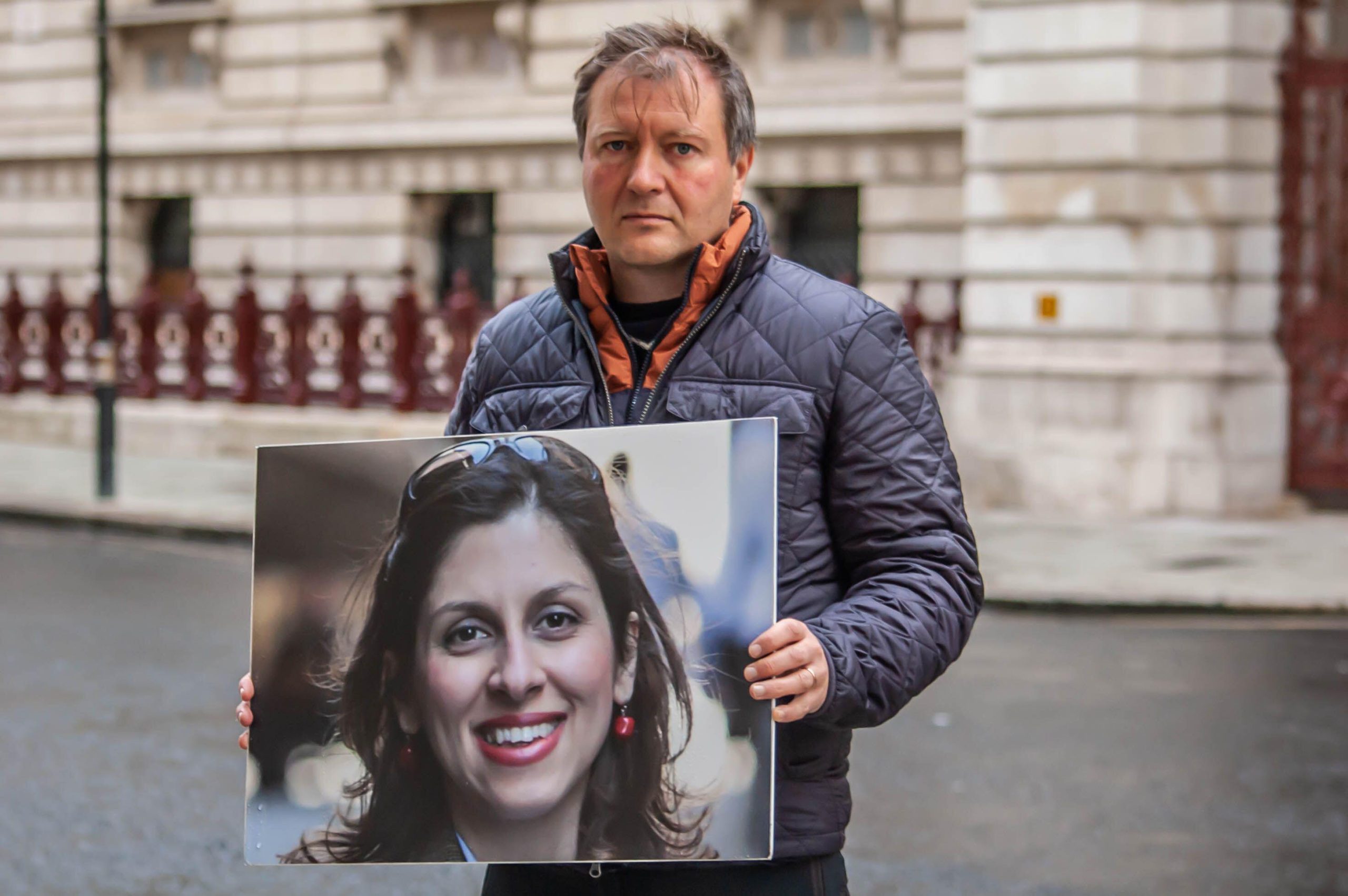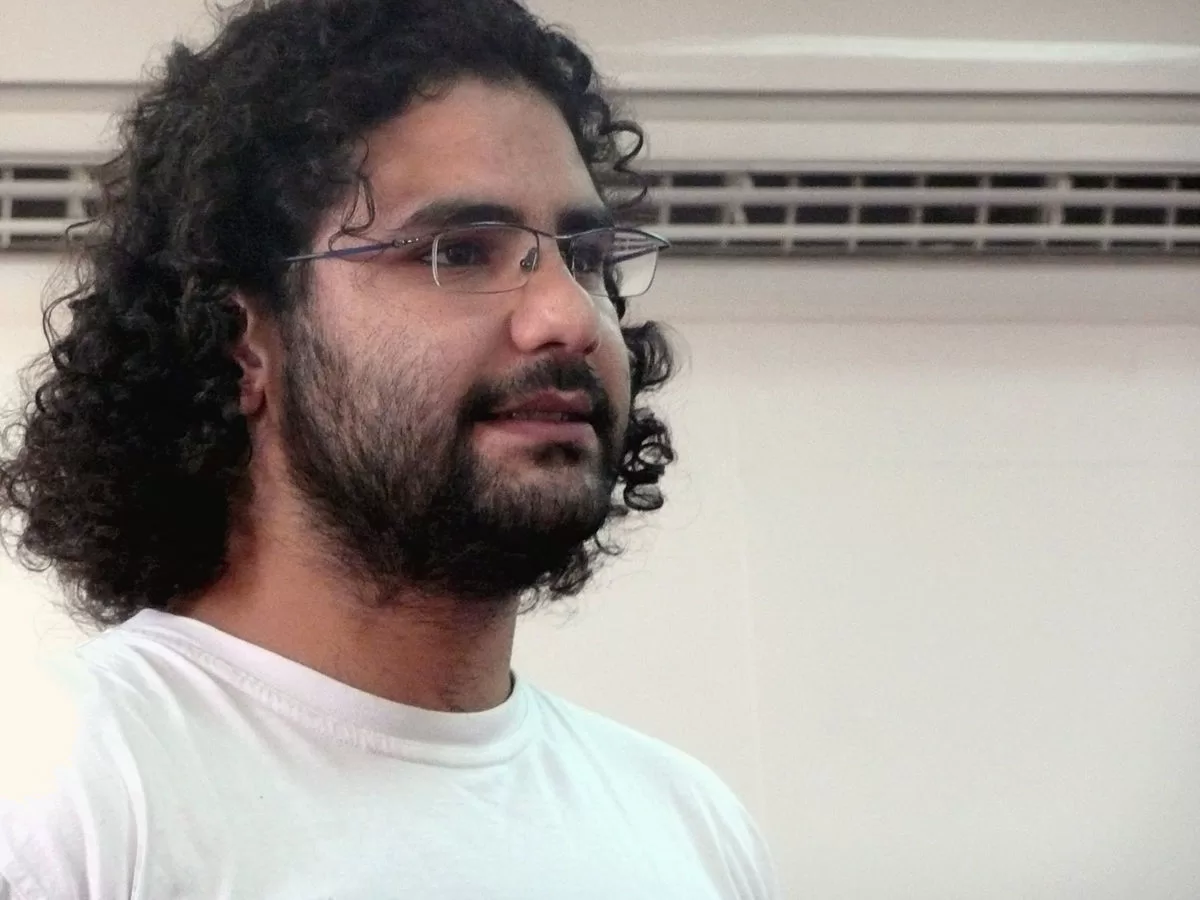A “farewell note” from prominent Egyptian journalist and popular talk show host Yosri Fouda, posted on his Facebook wall and published in Al Badeel independent newspaper on Thursday, sent shockwaves across a country bracing itself for its first multi-candidate presidential election in less than a week’s time.
In his post written in Arabic, Yosri announced that he would end his evening show “Last Words” in six weeks’ time. The show, broadcast live on weekdays on the private satellite channel ONTV (owned by business tycoon Naguib Sawiris), has earned the veteran journalist wide acclaim and a big following among a public that is thirsty for truth after decades of being kept in the dark.
In what he described as a “personal message to his devoted fans” Yosri stated that he had created the show in order to keep track of the fast-paced developments associated with the revolution and that he was proud to “have had the opportunity—together with my colleagues—to be part of the momentous events, as both an Egyptian patriot and a dedicated professional.”
Yosri reminded his fans that when he had taken on the challenge of presenting the show five days a week, he had declared his intention to quit once Egyptians elect a new president, (which had been expected before the end of last year) “but I felt obliged to continue when things got complicated.”
Yosri affirmed that the timing of his resignation was neither linked to his reading of the current political situation in Egypt nor to his judgement of the future of the revolution.
“I fervently believed then, as I do now, in the goals of the revolution just as I believe in the young people of Egypt who will overcome the challenges and not give in to despair. I am also convinced that my country is the most beautiful country in the world even though I cannot deny that it does have an ugly side,” he added.
The resignation drew an outpouring of disappointment and support for Yosri from thousands of fans on social media networks like Facebook and Twitter, with many of his young supporters urging the veteran talk show host to reconsider his resignation.
“A huge loss at a delicate time! Egypt is now — more than at any other time — in dire need of her honest sons,” read a Facebook post by Ahmed Maher, Egypt’s Ambassador to the Philippines.
“Don’t abandon us,” was a plea posted by another fan, Omneya Zordok, a Sociology Professor based in Zagazig, on Yosri’s Facebook page. “You are the voice of truth that they have for long tried to silence,” she added
“They” clearly refers to the military rulers who have continued the repressive tactics of the previous regime, intimidating and threatening outspoken journalists critical of the military government. After his unbiased coverage of violent protests in central Cairo late last year, scores of Mubarak supporters organised a protest in February outside the administrative headquarters of ONTV in Zamalek denouncing what they described as the news channel’s “policy of incitement against the military council.” The protesters chanted slogans against Yosri Fouda and his fellow anchor Reem Maged. The Supreme Council of the Armed Forces had previously summoned Maged and two of her guests for questioning.
Meanwhile, co-hosting the first-ever Presidential debate in the Arab World telecast live on ONTV last week appears to have boosted the popularity of the star journalist, already recognised for his integrity and non- biased reporting.
Some fans drew similarities between Yosri’s decision to quit and an earlier decision by reform leader Mohamed ElBaradei to withdraw from the Presidential race. ElBaradei, who had been widely expected to participate in the upcoming election announced four months ago that he would not run for any office “in the absence of a genuine democratic system.”.
Aliaa El Badrawi, who coordinates the Year Abroad Students Program at the American University in Cairo, said: “I feel Yosri’s decision must have been based on complex issues which affected him negatively and which will also impact his audience in the same way — much like when ElBaradei was forced to pull out from the scene. I hope things turn out in such a way that he won’t have to leave with a heavy heart.”
Addressing Yosri himself, she stated: “you are very much appreciated for your ethics and integrity and you have certainly done a great deal at a critical time for Egypt.”
Many saw Yosri’s decision as a sign that he too had lost faith that any real democratic change would take place in Egypt.
“It’s a sign of hopelessness. He has lost hope that the revolution can bring about tangible change,” Sayed Tolba Allam, a translator at the Saudi Defence Ministry, wrote on Facebook.
Others suggested that Yosri may have been forced to tender his resignation through coercion or threats from the repressive military authorities.
“Yosri may be afraid that once Ahmed Shafeek [the Presidential hopeful supported by the military] becomes the next President as is expected — a series of “revenge assassinations” [of outspoken critics of the military] may follow,” was the scornful explanation offered by dentist Amr Moukhtar.
Several polls have indicated that Presidential hopeful Ahmed Shafeek, a former civil aviation minister under Mubarak, was among the three frontrunners in the presidential race. Widely detested by the revolutionaries, he has the support of the so-called “couch party”—a term used to refer to those yearning for stability but have opted to stay out of politics and were following the ongoing developments on television.
In March, Yosri’s name had appeared on a list of outspoken journalists, writers, politicians and activists to be referred to the Military Prosecutor for investigation on charges of “incitement to demolish the state” and for “driving a wedge between the people and the military rulers.” This, after a complaint signed by 700 civilians against 12 public figures (including two parliamentarians)was filed to the Prosecutor General. The move is a repeat of a Mubarak-era practice that allowed the state to crack down on voices of dissent without direct confrontation.
Although the reasons behind Yosri’s resignation are yet unclear, what is certain is that his decision has deepened the confusion and worry Egyptians feel in the run-up to the presidential vote. The de facto military leader Field Marshal Tantawy has reassured a sceptical public that the elections will be free and fair. But many have been left wondering what has driven Yosri to quit, and why he has decided to announce it now?




